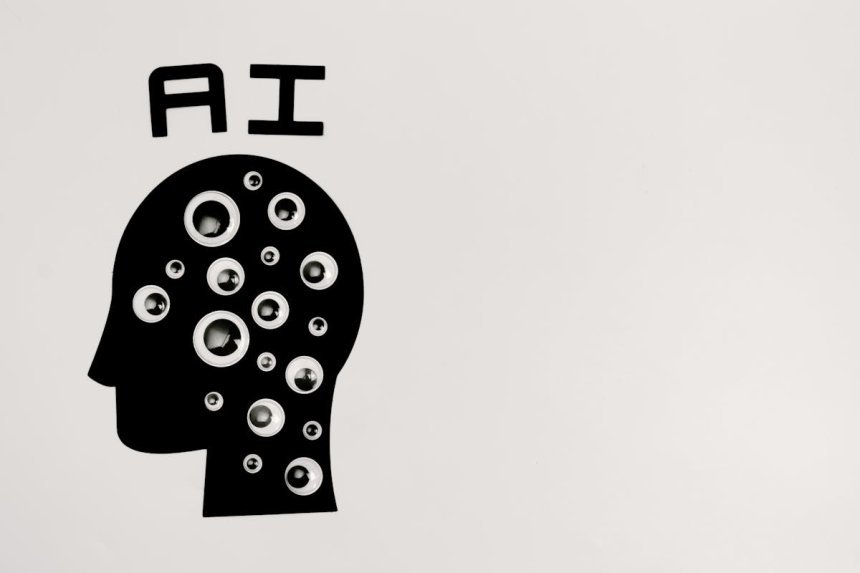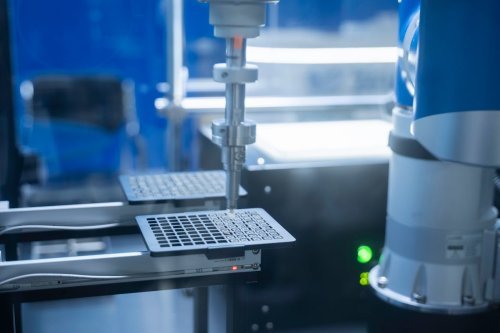Impacts of artificial intelligence on companies: what will they be?
Technological changes have brought new solutions and different ways of dealing with the realities of companies to the world, whether they are promoted in the creation of new products or in the way businesses are managed internally. But what are the impacts of artificial intelligence?

Technological changes have brought new solutions and different ways of dealing with the realities of companies to the world, whether they are promoted in the creation of new products or in the way businesses are managed internally. But what are the impacts of artificial intelligence?
One thing is certain, we don't need to be afraid, imagining that it is exactly what we see in the movies, where robots have cognition similar to that of human beings.
Understand how these technologies work, what the advantages and disadvantages of artificial intelligence – also known as AI – are, and the main impacts it has on the business world. Enjoy your reading!
Artificial intelligence: what is it?
Before understanding the impacts of artificial intelligence, it is essential that we correctly understand what it is.
The name artificial intelligence refers precisely to machines, that is, artificially created tools, that think in a similar or superior way to human capacity, denoting intelligence.
This means that machines that rely on AI systems have the ability to learn, reason, differentiate and make decisions based on this information. This characterizes one of the main elements of artificial intelligence, machine learning .
Artificial intelligence and machine learning go hand in hand, with the latter being responsible for improving the technology, as it begins to learn on its own from the data it analyzes.
However, this does not mean that machines can be intelligent enough to take control of humans, simply because artificial intelligence programs each machine individually.
Let's bring an example to make this clearer. Imagine a robot programmed with artificial intelligence to play chess, so that it can do so data has been introduced into it so that it knows how to perform the activity.
By being equipped with AI specific to the game of chess, with each round it participates, it will collect more data to be analyzed so that its results can be improved, which is called machine learning.
Even with such intelligence, all the “wisdom” of the chess-playing machinery cannot be used for other functions. We humans are the ones who program the technology and direct it towards our objectives.
One of these goals is to improve business processes, optimizing work and delivering better solutions to customers.
Main impacts of artificial intelligence on companies
Now that you know what it is, it's time to learn about the impacts of artificial intelligence on companies.
Reduction of existing jobs
Let's start with something that sounds negative, after all we want to be honest here and present the advantages and disadvantages of artificial intelligence.
Technological advances have always led to the extinction of some jobs that were previously common, and artificial intelligence will be no different.
Jobs considered to be low-productivity tend to be replaced by automated mechanisms equipped with AI.
Sectors such as transportation, storage and administration would be, according to PwC's forecast , the areas most affected by this reduction, since part of their functions could be performed by machines programmed to deliver what a human previously delivered.
Increase in new jobs
Everything presented in the previous topic does not necessarily mean one of the disadvantages of artificial intelligence, but rather something that can affect workers, who will have to seek requalification, however, the tendency is for vacancies to increase.
Just as old jobs are closed, new demands arise and create new job opportunities. If we look at past industrial revolution cycles, we see that old professions end while others are created.
A brief example involves our computer, in the past messages were written on typists, which needed constant maintenance.
Because of this, a professional was needed to perform maintenance on these typewriters.
Its function fell into disuse with the device, but the computers that replaced it brought with them several other employment opportunities, from maintenance to the manufacture of components.
Performance gains in organizations
With a large database and a high capacity to process this information, companies that invest in and know how to use artificial intelligence will gain in performance.
This increase in performance leads to increased productivity, as bureaucratic tasks and information interpretation that were previously performed by humans and took time to complete can now be done quickly and with less chance of errors.
Lack of empathy
This impact is yet another warning for companies not to get lost on the path of technological advancement, once again bringing with it a disadvantage of artificial intelligence.
With work previously done by humans now represented by machines, the connection can be lost, indicating a lack of empathy and concern for the consumer.
A clear example of this are virtual assistants, called chatbots.
You know when you go to a website and a window opens in one of the corners of the screen allowing you to start a conversation with a company representative?
Many brands are investing in robots capable of maintaining these conversations and helping customers resolve issues.
By managing these robots with AI, they increasingly learn how to deal with situations and respond to consumers.
However, this mechanized function can denote a lack of empathy, especially when the machine does not know how to solve the customer's problem, sending ready-made messages that can cause irritation.
Focus on strategic activities
With activities that do not necessarily need to be carried out by humans being replaced by AI-enabled machines, companies can focus their human resources on strategic activities.
Strategic activities are those with the greatest potential to impact the outcome of the product that the brand intends to deliver.
Cost reduction
In the long term, one of the impacts of artificial intelligence is the reduction of operational costs.
As these technologies are still relatively new, especially in USA, their acquisition and development costs tend to be high.
However, over the years, the functions performed by machines tend to cost less than those performed by a human.
Security
Among the advantages and disadvantages of artificial intelligence (AI), improved security is a positive point.
Technologies created specifically for this segment can detect invasions of corporate systems more easily, ensuring the security of the company's data and preventing it from being invaded by potential hackers.
Its usefulness goes beyond the virtual world, surveillance systems with cameras can also be equipped with AI to determine patterns that correspond to suspicious behavior.
Improvement in recruitment and selection processes
Bringing the universe of artificial intelligence and machine learning to the Human Resources area, we can mention as one of its impacts the understanding of human affinities with certain contexts.
One example is recruitment and selection processes, where a system equipped with AI will analyze data to find candidates that best fit the business's organizational culture , saving the sector from a task that can be mechanized.
Sectors that are already being affected by AI
Some sectors are already feeling these impacts of artificial intelligence, seeking to use it in a beneficial way, check out what they are:
YOU
The first is undoubtedly the IT sector of companies, after all, the greatest innovations made possible by this type of technology are implemented in the company by it.
Whether it's through a security system, machine programming and automation, solving user problems or programming technological tools – such as the aforementioned chatbots – everything goes through IT.
Marketing
Another sector that has benefited greatly from the impacts of artificial intelligence is marketing, mainly due to the data that this technology allows for visualization.
Information provided by AI, such as big data , allows marketing to develop projects and campaigns with much more accurate targeting.
Logistics
The main innovations proposed for the logistics sector are not yet a tangible reality, however, some of these technologies are the main attraction of the current phase of development of artificial intelligence.
Cars that are partially self-driving are already available to consumers and the trend is that other vehicles that are essential for logistics, such as trucks, will also reach this point, which would represent a great logistical leap.
Furthermore, artificial intelligence (AI) has helped logistics stocks to detect which products are being moved and removed without the need for a human to perform this removal.
HR
Finally, we have HR, in addition to the example already mentioned of recruitment and selection processes, AI facilitates the process of understanding the desires of the internal public, monitoring their behavior and the progress of internal satisfaction.
Share
What's Your Reaction?
 Like
0
Like
0
 Dislike
0
Dislike
0
 Love
0
Love
0
 Funny
0
Funny
0
 Angry
0
Angry
0
 Sad
0
Sad
0
 Wow
0
Wow
0













